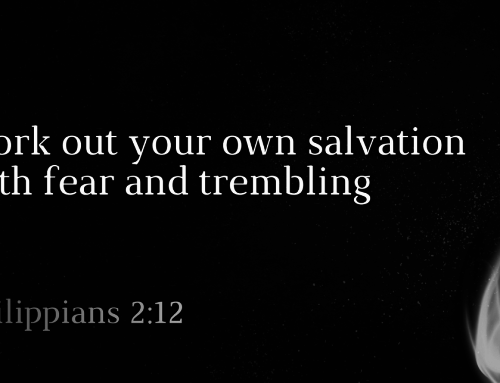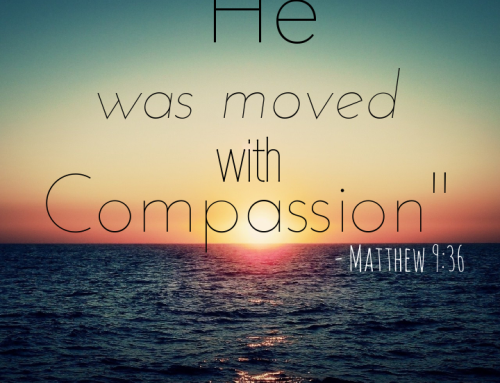Sometimes our trials overwhelm us because we view them on the horizontal as a grasshopper would a giant, instead of on vertical, with our eyes on the Lord.
Bible reference: Numbers 13:33
“And there we saw the giants, the sons of Anak, which come of the giants: and we were in our own sight as grasshoppers, and so we were in their sight.”
Background
After their long journey from Egypt, the Israelites had finally come to the wilderness of Paran, just south of the border of Canaan, the Promised Land. There, God commanded Moses to send out twelve spies (one from each tribe) to survey the land of Canaan before they would possess it. Joshua and Caleb were among the spies: Joshua represented Ephraim and Caleb represented Judah. These men searched out the land for forty days while the Israelites waited. On their return, their combined initial report of the land was, “Surely it floweth with milk and honey.” To prove their point, they handed over pomegranates, figs, and a large cluster of grapes — so large it had to be carried on a staff between two men.
The first report brought back by ten of the spies:
- positive: the land contained great natural bounty for their sustenance
- negative: there were strong giants in big, walled cities
The second report brought back by Caleb and Joshua:
Caleb reminded them that “we are well able to overcome it.” (verse 30) He remembered that the power of God which had brought them this far (including the miracle of the Red Sea) would still be with them and see them through.
On hearing these two different reports, the people chose their reaction:
- First report: there are giants in the land and we are grasshoppers by comparison. “They are stronger than we.” (v.31)
- Second report: “We are well able to overcome it.”
In other words:
- We can’t go forward VERSUS we can go forward.
Which would you choose? What do you choose when faced with life’s challenges?
A personal challenge
When we are faced with an unknown challenge large or small, how do we weigh up the success of getting through this challenge? Do we shut down and refuse to believe that we can get through it because the odds are stacked against us? No doubt the Israelites did have a “giant” challenge ahead of them, but they failed to judge the situation on a vertical level.
The ten spies looked at the horizontal: man versus giant = failure.
Caleb and Joshua looked at the vertical: man with God versus giant = victory.
A big problem
The Israelites judged their circumstances on a human level without considering God’s help. Of course, they could not face the giants by themselves! But why would God, who had shown them so much care and provision in their lives, leave them suddenly in the hour of a new crisis?
What about us?
Like Caleb, we must not leave God out of the equation of our lives or challenges! We will fail if we do not have His power, for without Him we cannot do anything! But with Him, we can do all things as He strengthens us. So, with the present “giant” you are facing, are you trusting the Lord to help you overcome it? Or are you cowering in fear?
How did the Israelites react and what were the consequences?
“And all the congregation lifted up their voice, and cried; and the people wept that night. And all the children of Israel murmured against Moses and against Aaron: and the whole congregation said unto them, ‘Would God that we had died in the land of Egypt! or would God we had died in this wilderness!..Were it not better for us to return into Egypt? ‘ And they said one to another, “Let us make a captain, and let us return into Egypt.'” (ch.14:1-4)
Notice who got the blame: Moses and Aaron, the servants of the Lord who “fell on their faces” before them, devastated by their reaction.
Notice their typical reaction:
- lifted up their voice (i.e. shouted)
- cried
- wept
- murmured
Does this sound familiar?
Joshua and Caleb tore their clothes and appealed to the people not to rebel because the Lord would protect them, but the people wanted to stone them!
Sometimes God’s people are the least tolerant when the Lord brings challenges to His church or to their fellow believers.
God was angry with their reaction. He asked Moses: “How long will this people provoke me? and how long will it be before they believe me, for all the signs which I have shewed among them?”
In this question, you can detect the sadness of the Lord who had provided so incredibly for this people in bringing them out of Egypt safely, opening the Red Sea, giving them manna, quails, and water and never leaving them throughout their journey to the Promised Land. Now they have arrived, and they doubt His ability to see them beyond the present crisis.
What about us?
God has wonderfully preserved us to this point of time. He has saved us, kept us, provided for us in so many ways and now, as we face a crisis, we distrust His ability to carry us through? We can see the fault of the Israelites clearly, but they are no different than we. At the least inconvenience, we often revert back to our sinful ways of murmuring and complaining. Do we not hear the Lord asking “Why do my people doubt when I have done so much?’
What happened to the Israelites?
God was so displeased with their complaining that He promised that none of the adult complainers over twenty years old would enter the Promised Land, but their “carcases shall fall in this wilderness.” According to the number of days (40) that the spies checked out the land, they would continue to wander for the same number of years in the wilderness! This would give enough time for the older generation to die off. Only the offspring would be able to enter into the joy of the Promised Land.
What lessons can we learn from this account?
- We must trust God when we can’t see the way ahead or do not understand His ways. If the Israelites had only realized what incredible deliverance was prepared for them in the Promised Land. The giants were nothing to God. The giants in our lives are nothing to God. He can and He will deal with them His way. Our job is to trust — not muster up our own strength to deal with them — but to TRUST GOD’S STRENGTH to overcome.
Remember the Lord’s warning, “Without me, ye can do nothing.” That not only includes the “giant” decisions and challenges, but the small ones. Of course we cannot go forward on our own!
- We must not revert to complaining and murmuring when crises come. This reaction particularly grieves God. May we learn from the Israelites’ mistake and the consequences they bore. May we keep silence and ponder His ways in our hearts until He reveals what He is doing.
Joshua’s attitude is one for us to copy when he appealed to the people:
“If the LORD delight in us, then he will bring us into this land, and give it us…the LORD is with us: fear them not.” (14:8,9)
So, as you face the giants in your life, always remember these words and be encouraged by them: “THE LORD IS WITH US: FEAR THEM NOT.”
Consider the following pertinent story which resulted in a well-known, beloved hymn of encouragement, written by Maxwell N. Cornelius in 1842. (Hymn #487)
“The years of Mr. Cornelius’s life were dotted with difficulties. He learned the trade of bricklaying and became a building contractor in Pittsburgh. Then, an injury on the job site led to the amputation of his leg, and he saw the need to change his occupation. He went to college and became a minister of the gospel, but was forced to leave his first church in Pennsylvania due to his wife’s severe and protracted illness.
“He moved to California and built a large new church there, but many who had promised to fund the project failed in business, and he was left to cover much of the cost himself. Maxwell Newton Cornelius did so, but shortly afterward his wife died. He conducted the memorial service himself, quoting the lines of what is likely the only hymn from his pen, Sometime We’ll Understand.”
The song provides a wonderful statement of faith in God that looks beyond the trials of today and rests in God’s wisdom. Even when we cannot explain why something has happened, we can trust in the goodness of God (Rom. 8:28). What is so often a mystery here, God’s purpose in our trials, will be made clear one day.
Not now, but in the coming years,
It may be in the better land,
We’ll read the meaning of our tears,
And there, some time, we’ll understand.
Then trust in God through all the days;
Fear not, for He doth hold thy hand;
Though dark thy way, still sing and praise,
Some time, some time we’ll understand.
God knows the way, He holds the key,
He guides us with unerring hand;
Some time with tearless eyes we’ll see;
Yes, there, up there, we’ll understand.








